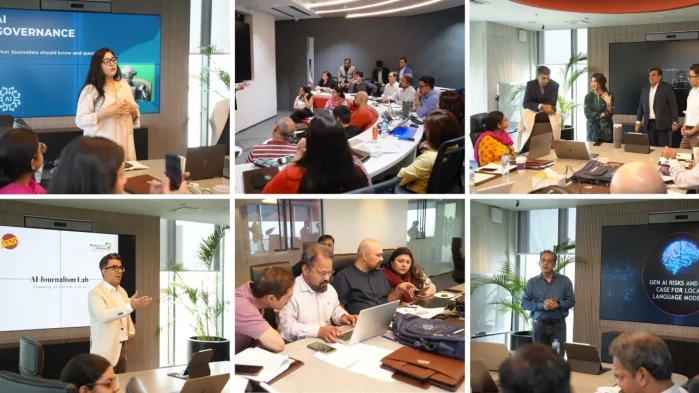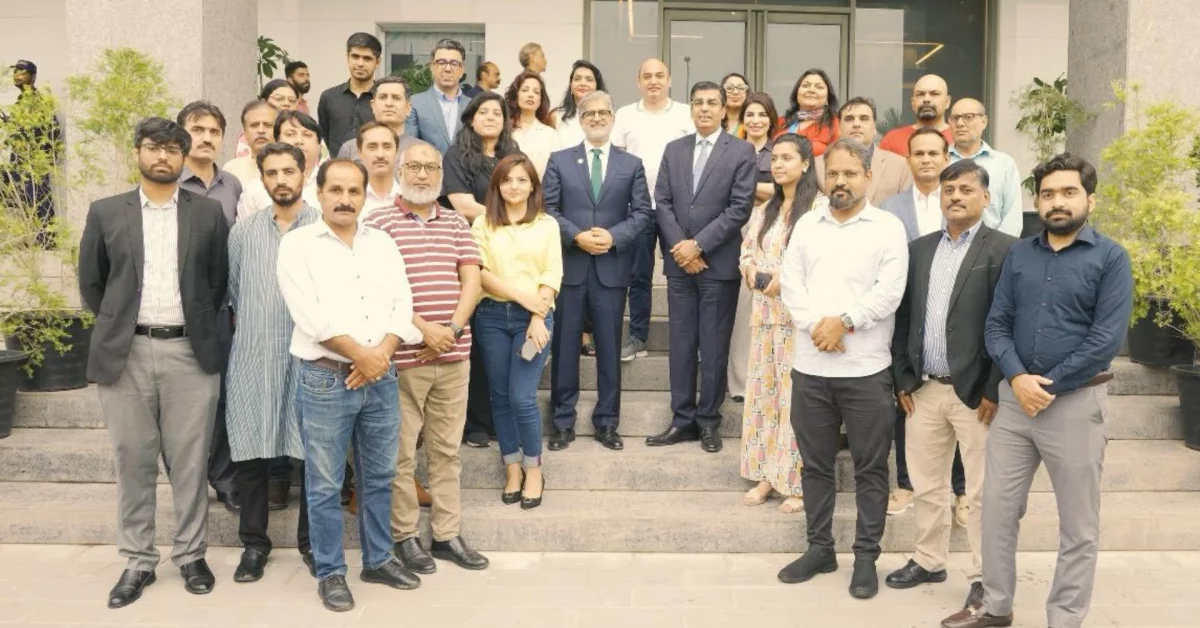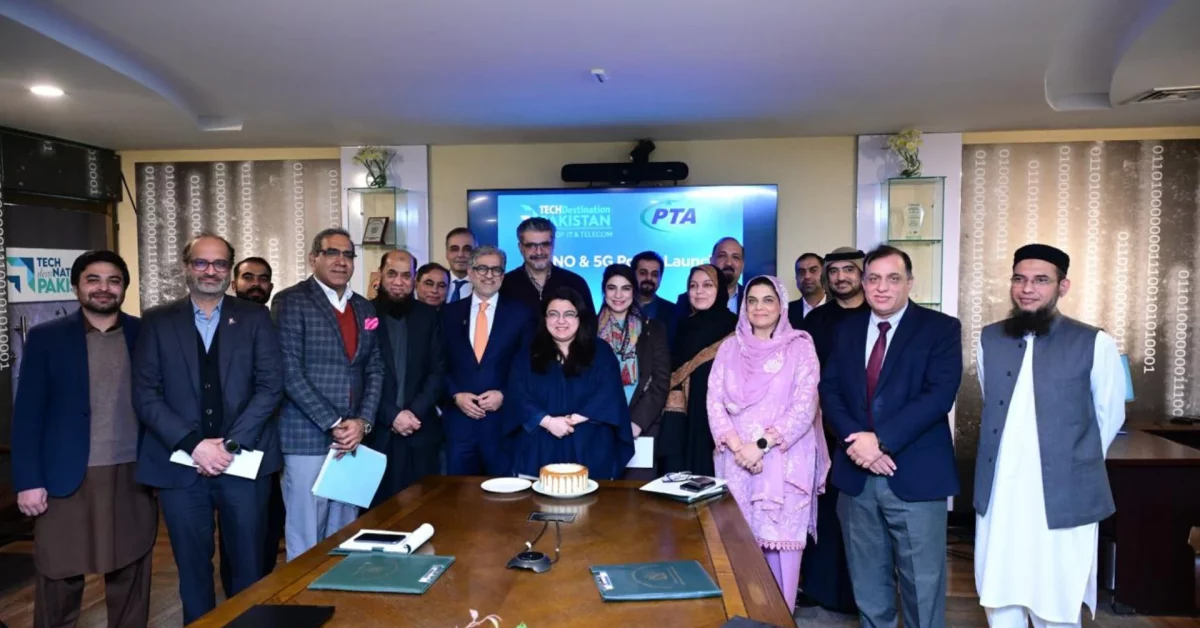
Chinese Firm to Build Pakistan’s Largest Textile
August 15, 2025
Art Is Dead and AI Has Killed It
August 15, 2025AI Workshop Calls for Accelerated Adoption in Newsrooms and Beyond
Islamabad – An AI Journalism Lab, recently organized by Jazz, has spotlighted the urgent need for Pakistan’s media sector and broader industries to adopt Artificial Intelligence (AI) as a core enabler of future readiness.
The two-day event, held at Jazz HQ, brought together journalists from Islamabad, Lahore, Karachi & Peshawar, technologists, and policy experts for hands-on sessions on how AI—particularly Large Language Models (LLMs) such as ChatGPT, Claude, and LLaMA—can transform newsrooms.
Participants explored AI’s role in generating story ideas, translating complex datasets into accessible narratives, enhancing investigative reporting, streamlining fact-checking, and creating visual content. Practical training covered prompt engineering, mitigating bias in training data, and defending against prompt injection attacks.
Policy-focused discussions examined the technology-regulation gap, advocating for self-regulation, ethical frameworks, and sovereign AI models to address underrepresentation of Urdu and regional languages in global datasets. Industry case studies from Jazz’s entertainment and healthtech verticals demonstrated AI’s commercial applications—from smarter content recommendations and metadata tagging to AI-assisted healthcare delivery.

Closing the workshop, Jazz CEO Aamir Ibrahim called AI “both a catalyst for progress and a test of adaptability.” He stated: “AI will not replace jobs, but it will replace people who do not learn to use it. The window for staying technologically relevant is narrowing, and the future will belong to those who adapt with speed and purpose.”
Ibrahim outlined Jazz’s leadership in building Pakistan’s AI infrastructure, including a partnership with NUST to develop Pakistan’s first LLM for Urdu and regional languages. “Investing in AI capacity today is not a choice—it’s a necessity. The cost of inaction will be far greater than the cost of acting now,” he warned.
Zaheer Mehdi, Chief Corporate & Regulatory Officer at Jazz, highlighted the importance of cross-sector collaboration: “Our aim is not only to equip journalists with AI tools but to build a national ecosystem where AI is developed, governed, and deployed in a way that reflects our culture, protects our data, and delivers equitable access to opportunity.”
The workshop concluded with a consensus that Pakistan’s AI journey must integrate innovation, policy readiness, and infrastructure investment. Local AI models trained on culturally relevant data, combined with strong governance, will be vital to safeguarding linguistic diversity, enhancing data security, and ensuring AI serves the public interest.
As participants departed, one key message resonated: AI is not just a technological upgrade—it is a transformative force that will define how Pakistan tells its stories, manages its knowledge, and competes in the global digital economy.






